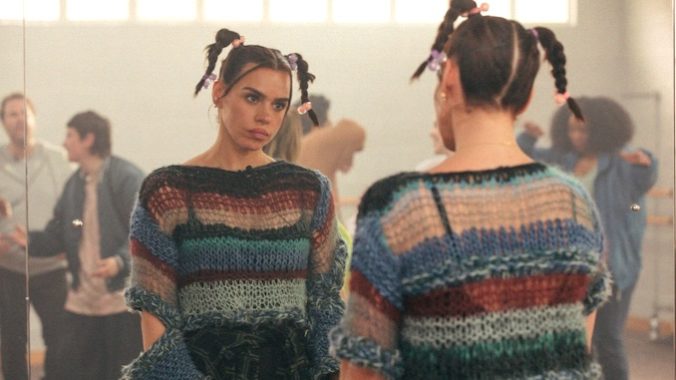TV Rewind: Max’s Underrated I Hate Suzie Is a Pitch-Perfect Commentary on Celebrity Meltdowns
Photo Courtesy of Max
Editor’s Note: Welcome to our TV Rewind column! The Paste writers are diving into the streaming catalogue to discuss some of our favorite classic series as well as great shows we’re watching for the first time. Come relive your TV past with us, or discover what should be your next binge watch below:

Is there anything more entertaining than a famous woman having a mental breakdown? If you’ve been a part of pop culture the past few decades, the answer is no. Even the most esteemed media consumers can’t help becoming vultures when they see a woman make a spectacle of herself. It brings out the worst of us all, the audience at the circus hoping to see the lion tamer get mauled just to prove the arena has stakes.
I Hate Suzie is about Suzie Pickles, a B-list British celebrity experiencing what it’s like to be obsessively loathed. After a nude photo leak reveals compromising photos (and her infidelity to her husband), Suzie descends into a modern madness.
The series, created by Succession writer Lucy Prebble and starring actress Billie Piper, flew under the radar during its run (especially in the U.S.) Drawing off of Piper’s real life rise to fame, I Hate Suzie is one of the funniest and most vicious commentaries of modern celebrity and the depravity of entertainment ever put to the small screen.
In the first season, each episode depicts Suzie in a different state of trauma from the incident. The claustrophobic first episode shows Suzie trying to conduct an idyllic tour of her house to a TV crew as the news slowly breaks. From there, things get worse. In the second episode she denies the photos are of her (on stage at a science fiction convention of course, drawing on Piper’s past starring role as Rose Tyler on Doctor Who). Her life becomes an evolving selection of overwhelming unescapable emotions. All the while, she lives under a public eye that will not look away.
I Hate Suzie reckons with the celebrity as a person versus as a figure to obsess over. Suzie faces real problems in her life, her relationship with her husband fractures, she tries to focus on parenting her deaf son, and her friendship with her best friend/agent is often contentious. During the Season 1 episode “Guilt,” we see Suzie return to her middle class home where her traumatic lack of privacy is a source of laughs and even her family is willing to take advantage of her fame for money.
Suzie feels like the world has turned against her—and it has. The momentous presence of her fame follows her everywhere, even when she tries to go home. But I Hate Suzie does not depict Suzie as just a helpless victim thrust into infamy. Suzie is a narcissist. She’s a bad friend and a disloyal wife. She lies and cheats often without regard. She is the world’s dream woman to hate.
There’s something refreshing about a show not afraid to let a woman be horrible in the way the media often lets men be. Suzie engages in careless vices that wouldn’t phase any viewers if she were a famous man. But I Hate Suzie is not about if Suzie is a “bad person,” a question that is ultimately worthless. The series instead puts the audience in her shoes. How would you feel if your privacy was erased? If every move you made was analyzed? And every “bad” decision was just further justification for treating you as the worst person in the world?
-

-

-

-

-

-

-

-

-

-

-

-

-

-

-

-

-

-

-

-

-

-

-

-

-

-

-

-

-

-

-

-

-

-

-

-

-

-

-

-








































